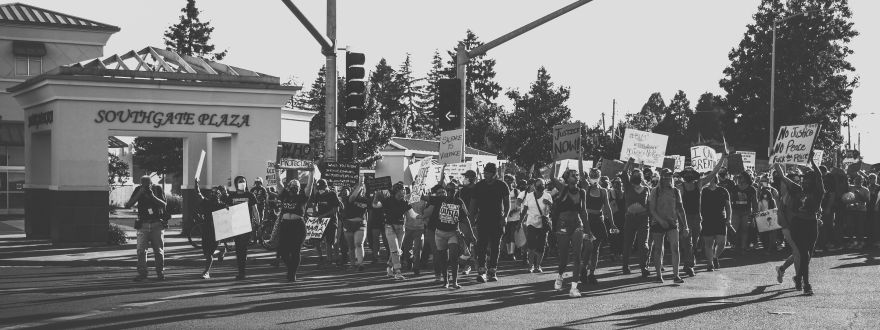
As nationwide unrest mounts in the wake of multiple police brutality cases, we see the unravelling of long-standing brand identities, the toppling of statues that glorify the short-lived Confederacy, and public acknowledgement and apology for associations with historic oppression. These public apolgogies are beginning to appear everywhere regardless of the industry, including our own, the insurance world. The current Black Lives Matter movement extends past our nation's borders and spills onto the angrily writhing streets of almost every country as we collectively grapple with the idea that system racism is ubiquitous.
Business giants in Britain have apologized for their historical role in the transatlantic slave trade, in the wake of global anti-racism protests. Insurer Lloyds of London, founded in 1688, is believed to be the world’s largest insurance market and insured slave ships.
The market said in a statement first reported in The Telegraph newspaper: “There are some aspects of our history that we are not proud of. “In particular, we are sorry for the role played by the Lloyd's market in the 18th and 19th-Century slave trade,” it added. They have now committed to investing in Black, Asian and minority ethnic communities and developing diverse talent internally. Lloyds said in its statement: “This was an appalling and shameful period of English history, as well as our own, and we condemn the indefensible wrongdoing that occurred during this period.”
In the case of Lloyd’s, the connection to slavery was through Simon Fraser, one of its founding subscribers, who owned at least 162 enslaved people and ran the Castle Bruce estate in Dominica. Fraser’s heirs were compensated with the equivalent of nearly £400,000 ($496,000) in today’s money.
Lloyd’s said it would examine how it presents its corporate history and its “organizational artifacts” to make sure they are “explicitly non-racist.” In its statement, it said, “There is a long way to go but we are determined that we can and will create a culture in the Lloyd’s market in which everybody can flourish.”
Skeptics would like to see a concrete action plan as a follow up to the sentiments shared by Lloyd's, among countless other companies. “A token nod to encouraging diversity and giving away unspecified amounts to charity is frankly insulting,” said Kehinde Andrews, a professor of black studies at Birmingham City University. These gestures, if not followed up by specific reparations and meaningful action, are viewed as hollow publicity stunts. We shall see as this global movement continues to unfold.
Sources: Forbes, New York Times





